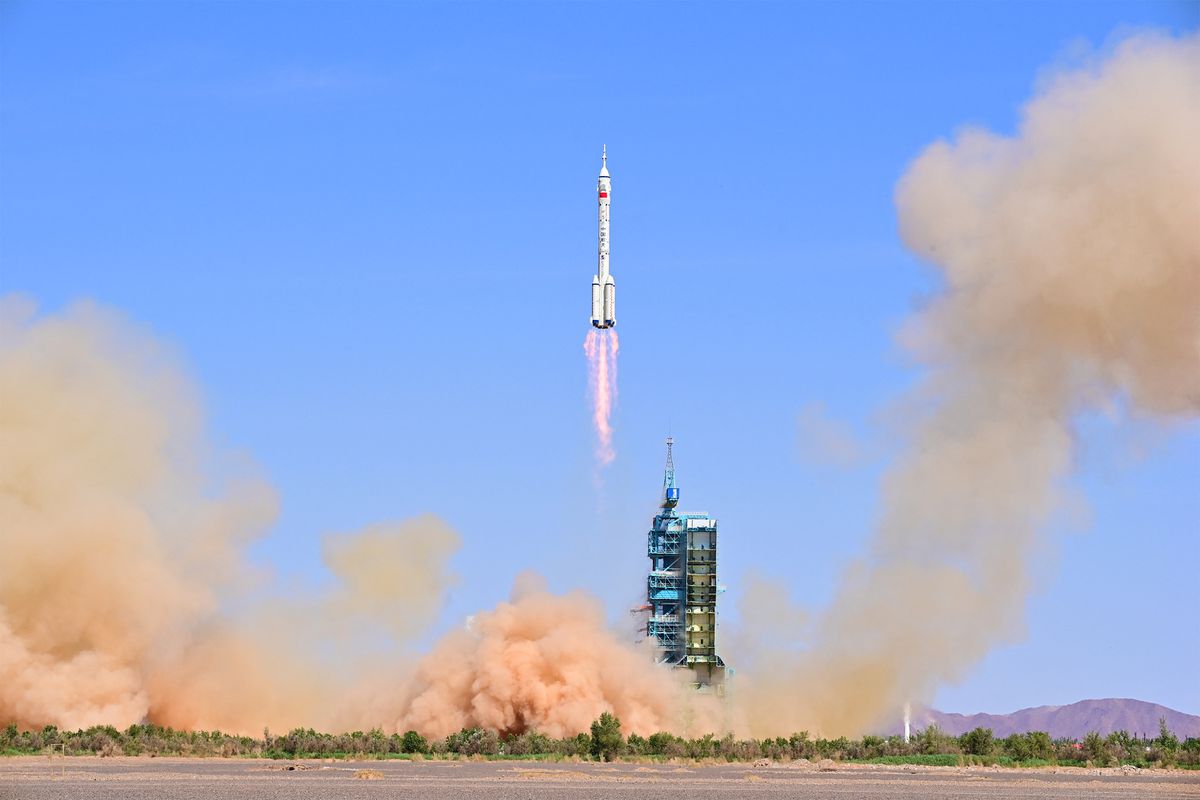
China launched three astronauts on a six-month mission on Sunday to oversee a critical phase of the construction of its space station, whose final modules are scheduled to launch in the coming months.
When finished by the end of the year, the space station would mark a key milestone in China’s three-decade-long human space programme, which was officially approved in 1992 and was initially code-named ‘Project 921.’ It will also mark the beginning of permanent Chinese space colonisation.
The completion of the building, which is roughly one-fifth the mass of the International Space Station (ISS), is a source of pride for ordinary Chinese people, and marks the end of President Xi Jinping’s ten years as leader of the ruling Communist Party.
A Long March-2F rocket, which launched China’s first crewed spaceflight on the Shenzhou-5 mission in 2003, lifted off from the Jiuquan Satellite Launch Center in northwest China at 10:44 a.m. (0244 GMT) with the spacecraft Shenzhou-14, or ‘Divine Vessel,’ and its three astronauts, according to a live broadcast by state television.
‘When I was in primary school, I observed the launch of Shenzhou-5, and today we have Shenzhou-14,’ Zanna Zhang, a social media developer, told Reuters.
‘Of course, I’m overjoyed, and I’m quite pleased to be Chinese. We’ve taken another step toward becoming a space powerhouse,’ the 25-year-old explained.
The first and largest of its three modules, Tianhe, the living quarters of visiting astronauts, was launched in April of last year. Wentian and Mengtian lab modules will be released in July and October, respectively.
Chen Dong, 43, and team members Liu Yang, 43, and Cai Xuzhe, 46, all from China’s second cohort of astronauts, will live and operate on the space station for around 180 days until returning to Earth in December with the arrival of the Shenzhou-15 crew.

Post Your Comments